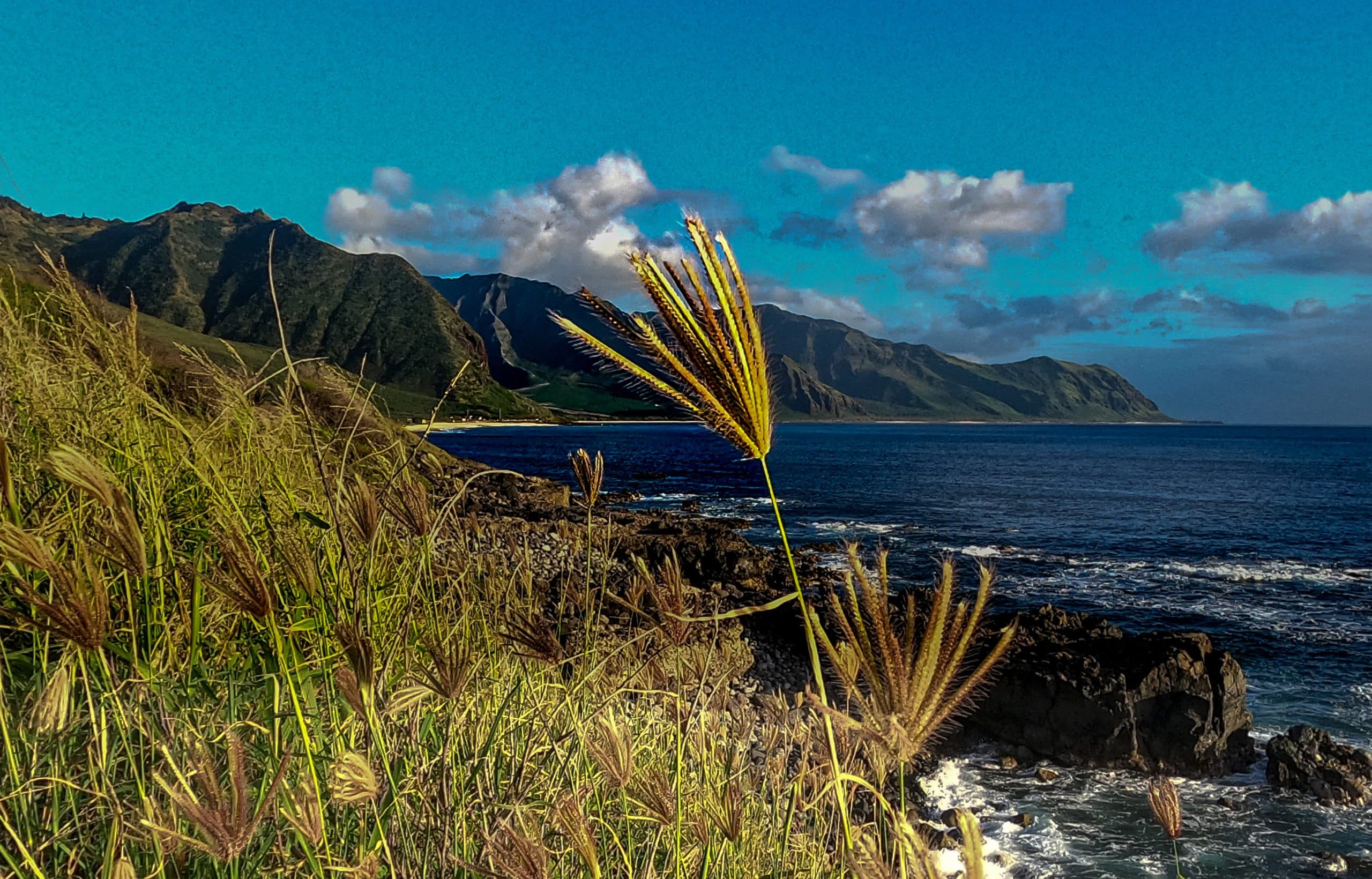Many people are keeping an eye on the Hawaii reopening process for tourists. Since March 2020, a 15-day quarantine had been required for anyone arriving on the island, but now this measure is relaxed, allowing travellers to submit a negative COVID-19 test, carried out by a state-approved company. For up-to-date information on restrictions, go to Hawaii Travel Restrictions.
Hawaii residents sacrificed themselves to keep their communities safe during this pandemic, and in doing so, achieved one of the lowest COVID-19 case rates of any other state in the United States.

However, with the rules and law fluctuations determined by the Hawaiian authorities, tourists arriving on the island are still confused by what is allowed and prohibited.
This confusion also directly affects those who own businesses on the island, such as Yoga teacher Alessandra Lopes, who moved to Hawaii in 2009 and created, together with her partner, an outdoor Yoga class on Waikiki Beach called @2FBeachpParkYoga.
In June, the island attempted reopening to tourists for the first-time, catering predominantly to American tourists eager for a trip after being locked up for so long. Alessandra Lopes says despite the influx at the time, attendance in her classes did not recover to pre-pandemic levels. Today, student numbers are still lower. The primary reason being international travellers from neighbouring countries such as Japan, Australia, New Zealand, and Canada still face restrictions on entering the US.
“My classes used to be 50% tourists and 50% residents. Today 80% are locals – which has increased due to the demand for outdoor sports classes – and the remaining 20% are mostly American tourists”; she says.
The Masks Continue
Amid so many fluctuations, one requirement that has not changed is the mask mandate – federal law requires all airline passengers aged two years and older to wear a mask at the airport, during boarding, and during flight.
You cannot ride a bus on Oahu, for example, without a mask. Likewise, on the popular hiking trail to the summit of Lēahi, also known as Diamond Head, visitors are required to wear masks on lookouts and in indoor spaces.
Each County in Hawaii has its Own Rules
Since November 13 on Oahu, anyone who wants to enter a restaurant, bar, gym, movie theatre, museum, or other business will need to present proof of vaccination or an FDA approved negative test obtained in the last 48 hours. (Children under 12 years old are exempt.) In addition, restaurants and bars must stop serving alcoholic beverages at 2 am.
In Maui, nobody is permitted to dine in restaurants without first showing proof of vaccination. Tours are also affected, with limited group size for snorkelling excursions, sunset sailing, and other activities.
Are you still confused?
“Our reopening plan is like roller skating”, said John De Fries, president, and CEO of the Hawaii Tourism Authority. “It just keeps moving.”
According to the Hawaii Tourism Authority, today, any person from the US either fully vaccinated or with a negative COVID-19 test can fly to the Islands. Hotels are open, restaurants are open, and public spaces – beaches, parks, and hiking trails are open.
Plan Ahead
 Many tours, shows, and attractions now require or highly recommended reservations. The nature reserve Hanauma Bay, on Oahu, has launched an online reservation system and raised rates to $25 per person for non-residents. Spaces are limited and sell out in minutes.
Many tours, shows, and attractions now require or highly recommended reservations. The nature reserve Hanauma Bay, on Oahu, has launched an online reservation system and raised rates to $25 per person for non-residents. Spaces are limited and sell out in minutes.
Hā’ena State Park on Kaua’i, which includes access to Kē’ē Beach and the Kalalau Trail, also requires reservations, and like Hanauma Bay, the park has a daily limit on visitors with new fees.
The Polynesian Cultural Center at Lā’ie on Oahu has sold out its popular lūau VIP package until 2022. Day-to-day tickets still become available but be prepared to be flexible on days and times. Taking place on the first Friday of every month, First Fridays in Honolulu’s Arts District in Chinatown is a hip festival highlighting the neighborhood’s art galleries, shops, restaurants and featuring live entertainment, street vendors, and more. Establishments offer discounts, food and beverage specialties, and free entertainment. Most stores are open until 9:00 pm, and afterward, you can have fun in the nearby bars. Chinatown on Oahu has become a destination for hipsters and young adults.
Check out tours, shows, and other attractions before arriving and book tickets in advance. The same goes for restaurants.
Hawaii’s restaurants are grappling with staff shortages – which translates to shorter hours and sometimes long wait times – and government rules not allowing them to run at full capacity. Smaller menus and limited availability are to be expected while visiting.
If dining at a particular restaurant is on your must visit list, be sure to make reservations in advance. Otherwise, you might end up picking up your meals at convenience stores – yes, it’s happening!
While it may seem tempting – even wise – to make multiple reservations for a single day then pick and choose which to show up to, no-shows are expensive for restaurants that are already struggling. Remember to call and cancel in advance if you must.
Difficulty Renting Cars
When Hawaii first reopened to tourist entry, car rental’s spiked to over $500 dollars per day– if you could even find it. Ingenuitive tourists rented U-Hauls (they are cheaper).
After further restrictions due to new variants, prices fluctuated down. Nevertheless, some entrepreneurs like Luciano Colle, who owns a car rental company in Oahu called Island Auto Rentals, says he has reasonable expectations for the holiday season.
“The forecast here is always to improve. Hawaii is one of the most dreamed-of tourist destinations globally, and that has not changed. American tourists are already back, Europeans are returning, and by the time Asians start to return, it will get even better. My prediction is that by July 2022, we will be 100% normalized. Let us hope everyone gets vaccinated soon!”, says Luciano.
What Happened?
Car rental companies sold vehicles in 2020 in anticipation of the continued financial blow suffered from COVID-19’s widespread travel restrictions. Luciano recognized the opportunity and purchased cars from agencies at low prices. Rental companies have not been to replace sold inventory in time to meet demand. Supply is still low.
“People say I got lucky, but that was not it. I have worked in this sector for years and have noticed and studied the situation. I already wanted to increase my fleet and knew how to take advantage of the opportunity to buy vehicles at low prices. Also, I still did a lot of business with small local businesses by renting to mechanics and other companies on the island. That’s how I survived the pandemic”, explains  the businessman.
the businessman.
Finding a rental car is not as difficult now as it was earlier this year. Still, book early to ensure you have transportation to get around and enjoy the island. Travel rules are changing all the time, so stay tuned.
As of July 8, 2021, fully vaccinated people in the US or its territories can enter Hawaii on domestic flights without pre-trip testing or quarantine on arrival. (Persons must wait 14 days after their second COVID-19 injection to be considered fully vaccinated.) All other travellers must have their COVID-19 negative test results from trusted travel and test partners uploaded to the program portal State Safe Travels prior to departure to avoid the mandatory 10-day Hawaiian quarantine.
And the Last but not Least: Be Respectful, Polite, and Follow the Rules.
We know you are on vacation. We have all been stuck at home for months, worried, scared, tired, eager for a change, and desperate to feel normal again. It is important to remember, though, that Hawaii is not just a visitor destination. First and foremost, it is a nature reserve home to hundreds of varieties of endangered plants and animals. Walk on public trails. Respect the sacred places.
Wear a mask inside establishments. Be friendly and respectful to service staff at hotels, restaurants, car rental agencies (especially them; it is not their fault), and anyone you meet. It has been a difficult time for many. The people you will meet during your trip would love to be on vacation too. Photos: Viviane Faver
VIVIANE FAVER
Journalist
vfaver@gmail.com


